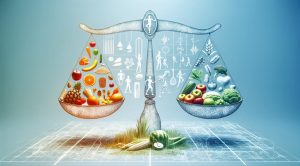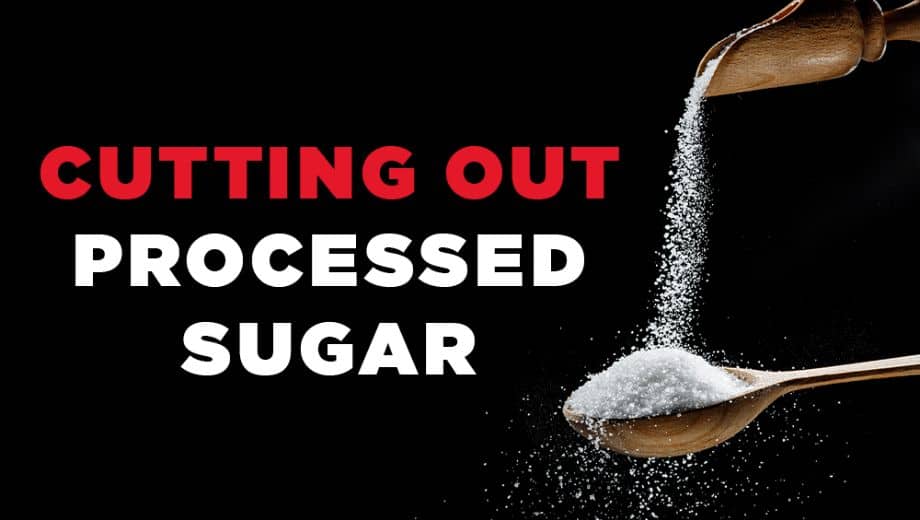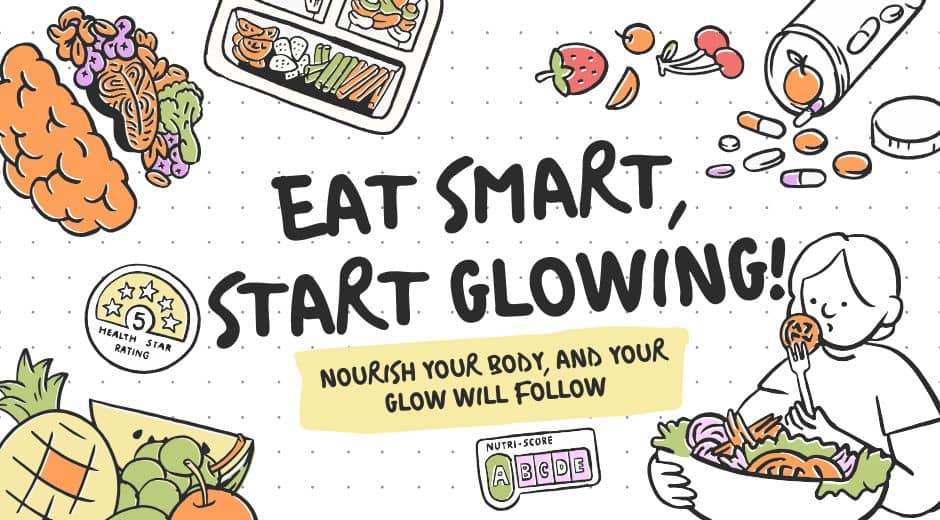Hydration Balance: How Water Shapes Energy, Digestion, and Daily Wellness
Water is the foundation of life. Every system in the human body depends on it. Without proper hydration balance, energy drops, digestion slows, mood shifts, and physical performance declines. While many people think hydration is just about drinking water, true hydration balance goes much deeper. It involves electrolytes, nutrients, hormones, digestion, and cellular function working together to maintain harmony.
Hydration balance influences how you feel each moment of your day. It affects brain function, metabolism, temperature control, muscle movement, and even emotional stability. Most people underestimate how much hydration balance shapes their wellbeing. Even mild dehydration can cause fatigue, headaches, difficulty concentrating, cravings, and increased stress.
Understanding hydration balance helps you take control of your health from the inside out. It is one of the simplest and most powerful tools for daily wellness.
What Hydration Balance Actually Means
Hydration balance refers to the relationship between water intake, water loss, and electrolyte levels. The body constantly works to keep hydration balance stable. When this balance shifts, even slightly, the body must work harder to perform basic functions.
Hydration balance involves:
-
Water intake through drinking and food
-
Water loss through sweat, breath, and urine
-
Electrolytes like sodium, potassium, magnesium, and chloride
-
Hormones that regulate fluid levels
-
Cellular absorption of water
This balance ensures that the body stays energized, focused, and physically capable. It supports organs, tissues, and metabolic systems that keep you alive and healthy.
Why Hydration Balance Matters for Wellness
Proper hydration balance influences nearly every aspect of your health. Water plays a central role in:
-
Transporting nutrients
-
Maintaining blood pressure
-
Regulating temperature
-
Supporting digestion
-
Lubricating joints
-
Helping muscles contract
-
Eliminating waste
Without hydration balance, these systems struggle. The body begins to conserve water, which can slow digestion, increase heart rate, and reduce mental clarity.
Even slight dehydration can impact daily function. Studies referenced by Cleveland Clinic show that losing as little as two percent of body water affects concentration, mood, and physical endurance.
Hydration balance keeps everything moving smoothly. It is the quiet force that fuels daily life.
Signs Your Hydration Balance Is Off
Many people walk through life dehydrated without realizing it. Symptoms of poor hydration balance include:
-
Fatigue
-
Headaches
-
Brain fog
-
Cravings for salty foods
-
Muscle cramps
-
Dry skin
-
Dizziness
-
Irritability
-
Dark urine
-
Rapid heartbeat
These signals are your body asking for hydration balance to be restored.
When you listen early, you prevent long term strain on health.
The Role of Electrolytes in Hydration Balance
Water alone is not enough to maintain hydration balance. Your body also needs electrolytes. These minerals help water enter cells, maintain fluid levels, and support electrical signals in the muscles and nervous system.
Key electrolytes include:
-
Sodium
-
Potassium
-
Magnesium
-
Calcium
-
Chloride
Electrolytes support:
-
Muscle contractions
-
Heart rhythms
-
Nerve communication
-
Fluid absorption
-
Temperature control
When you sweat, electrolytes are lost. Without replacing them, hydration balance weakens. This is why athletes emphasize electrolyte intake to maintain endurance and recovery.
Hydration balance is stronger when electrolytes and water work together.
Hydration Balance and Digestion
Digestion depends heavily on hydration balance. The digestive system uses water to break down food, absorb nutrients, and move waste. When hydration balance drops, digestion slows, leading to bloating, constipation, discomfort, and decreased nutrient absorption.
Water helps produce:
-
Saliva
-
Stomach acid
-
Digestive enzymes
-
Bile
-
Mucus lining in the intestines
A hydrated body digests more efficiently and feels lighter, more energized, and less inflamed.
Proper hydration balance also improves gut motility, meaning food moves through the digestive tract at a healthy pace.
Hydration Balance and Metabolism
Your metabolism relies on water for almost every reaction in the body. Hydration balance helps metabolize carbohydrates, fats, and proteins. It also increases cellular activity that supports calorie burning and energy production.
When hydration balance drops, metabolism slows. People may feel tired, hungry, or sluggish. Even mild dehydration makes the body less efficient.
Hydration balance boosts metabolism more effectively than most supplements. It is one of the simplest ways to support weight management and energy.
Hydration Balance and Brain Function
The brain is made of about seventy five percent water. Maintaining hydration balance is essential for cognitive clarity, memory, mood, and focus.
When hydration balance shifts even slightly, the brain becomes less efficient. This leads to:
-
Difficulty concentrating
-
Confusion
-
Mood swings
-
Irritability
-
Slower response times
Hydration balance supports oxygen flow and nutrient delivery to the brain. It also regulates the production of neurotransmitters.
When you hydrate properly, thinking becomes clearer and emotions become more stable.
Hydration Balance and Physical Performance
Athletes understand that hydration balance can determine performance. Muscles need water to contract. Joints need lubrication. The heart needs hydration to pump efficiently.
Poor hydration balance leads to:
-
Faster fatigue
-
Muscle cramps
-
Reduced endurance
-
Slower recovery
-
Increased injury risk
Every movement requires hydration. Even everyday walking, housework, or office work feels easier when hydration balance is strong.
How Much Water You Really Need
Hydration needs vary based on:
-
Body weight
-
Environment
-
Activity level
-
Diet
-
Stress
-
Sleep
-
Climate
A general guideline is:
Thirty to thirty five milliliters of water per kilogram of body weight per day.
But hydration balance is more than a number. You must also listen to your body. Thirst is a late signal. Ideally, hydration balance is maintained before thirst appears.
Foods with high water content also support hydration balance, such as cucumbers, oranges, lettuce, watermelon, tomatoes, and celery.
How Diet Influences Hydration Balance
Food has a tremendous impact on hydration balance. Certain foods hydrate the body, while others dehydrate it.
Hydrating foods include:
-
Leafy greens
-
Melons
-
Berries
-
Citrus fruits
-
Cucumbers
-
Broth based soups
-
Coconut water
-
Tomatoes
Dehydrating foods include:
-
Salty snacks
-
Alcohol
-
Coffee (in large amounts)
-
Fried foods
-
High sugar foods
You can improve hydration balance significantly by choosing water dense foods daily.
Morning Hydration Balance
Starting the day with hydration sets the tone for everything that follows. Overnight, the body loses water through breathing and sweating. A morning hydration balance routine helps the body wake up naturally, flush toxins, and energize the mind.
A simple routine includes:
-
One glass of water upon waking
-
Adding a pinch of salt or lemon for electrolytes
-
Stretching gently to activate circulation
This helps start digestion, metabolism, and concentration early in the day.
Hydration Balance During Exercise
During exercise, the body loses water rapidly. Sweat contains water and electrolytes that must be replaced to maintain hydration balance and prevent fatigue.
Pre workout: Drink water with electrolytes.
During workout: Sip water regularly.
Post workout: Replenish fluids based on sweat loss.
Maintaining hydration balance during exercise improves endurance, strength, and recovery.
Evening Hydration Balance
Evening hydration supports:
-
Digestion
-
Temperature regulation
-
Muscle repair
-
Sleep quality
However, drinking large amounts too close to bedtime may interrupt rest. Slow sipping throughout the evening is more effective for maintaining hydration balance.
Common Myths About Hydration Balance
There are many myths about water and hydration. Here are the most common:
Myth 1: Eight glasses a day is enough
Hydration balance depends on activity, diet, and individual needs.
Myth 2: Coffee dehydrates you completely
Moderate coffee intake does not ruin hydration balance. Excess does.
Myth 3: Only athletes need electrolytes
Everyone needs electrolytes, especially in warm climates.
Myth 4: Thirst is the best indicator
Thirst appears after hydration balance is already disrupted.
Understanding these myths helps you make better hydration choices.
Creating Your Personal Hydration Balance Plan
A personalized hydration balance plan includes:
-
Setting daily water goals
-
Including hydrating foods
-
Tracking urine color
-
Adding electrolytes as needed
-
Drinking according to activity levels
-
Spreading water intake throughout the day
This routine makes hydration balance effortless and consistent.
Conclusion: Hydration Balance Shapes Wellness
Hydration balance is one of the most important pillars of health. It fuels energy, supports digestion, enhances concentration, and helps the body recover. When hydration balance is strong, wellness becomes easier to maintain. Mood stabilizes, the mind sharpens, and the body feels lighter and more energized.
To explore more nutrition insights and wellness strategies, visit BodyWellnessGroup.com.
For additional science backed hydration research, explore Cleveland Clinic.
If you want to build a healthier daily hydration habit, start your simple routine here: SportSoulPulse
Hydration balance is not a small detail. It is the quiet force that supports everything your body and mind do.
Wellness Made Simple

Body Reset Practices After Stressful Periods
Body Reset Practices After Stressful Periods

Energy Balance Habits For Sustainable Performance
Energy Balance Habits For Sustainable Performance

Holistic Body Care Beyond Exercise And Diet
Holistic Body Care Beyond Exercise And Diet

Physical Ease Practices For Pain Free Movement
Physical Ease Practices For Pain Free Movement

Why Athletes Load Manage: Protecting the Body for the Long Game
Why Athletes Load Manage: Protecting the Body for the Long Game

Wellness Rhythm For Balanced Daily Living
Wellness Rhythm For Balanced Daily Living

Building Body Resilience Through Consistent Habits
Building Body Resilience Through Consistent Habits

Movement For Wellness Without Overtraining
Movement For Wellness Without Overtraining

Calm Body Practices For Stress Sensitive Nervous Systems
Calm Body Practices For Stress Sensitive Nervous Systems

Rest And Renewal Practices For Mental And Physical Health
Rest And Renewal Practices For Mental And Physical Health













